What Are Chicken Necks For Dogs?
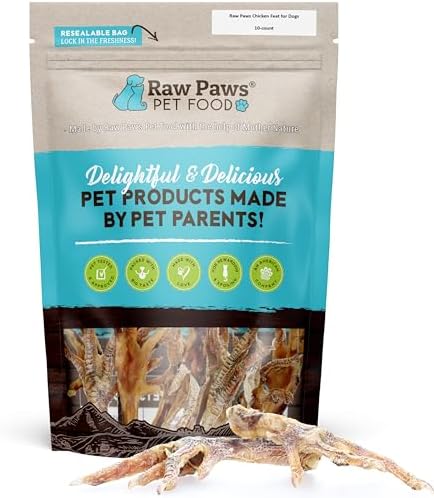
Chicken necks for dogs are a nutritious and tasty treat that can provide numerous health benefits. These treats are made from the necks of chickens and are rich in protein, chondroitin, and glucosamine. Protein is essential for muscle growth and development, while chondroitin and glucosamine help to support joint health and mobility. Additionally, chicken necks can help to improve your dog’s dental health by naturally cleaning their teeth as they chew. It’s important to ensure that the chicken necks you choose for your dog are sourced from reputable farms and are of high quality to ensure their safety and nutritional value.
What Are Chicken Necks
Chicken necks are a part of the chicken’s skeletal structure and consist of the bone, cartilage, and meat. They are typically sold as separate cuts and can be fed to dogs as a chewy treat. Chicken necks are a natural source of protein, chondroitin, and glucosamine, which are essential for muscle growth, joint health, and mobility. They are also a great way to naturally clean your dog’s teeth as they chew. It’s important to choose high-quality chicken necks from reputable sources to ensure safety and nutritional value for your furry friend.
Nutritional Benefits Of Chicken Necks For Dogs
Chicken necks offer various nutritional benefits for dogs. They are a rich source of protein, which is essential for muscle growth and repair. Additionally, chicken necks contain chondroitin and glucosamine, which support joint health and mobility in dogs. These nutrients are particularly beneficial for aging or active dogs who may be prone to joint issues. Moreover, chicken necks are a natural source of calcium, phosphorus, and other minerals that contribute to overall bone health. Including chicken necks in your dog’s diet can help provide the necessary nutrients for their wellbeing.
Are Chicken Necks Safe For Dogs?
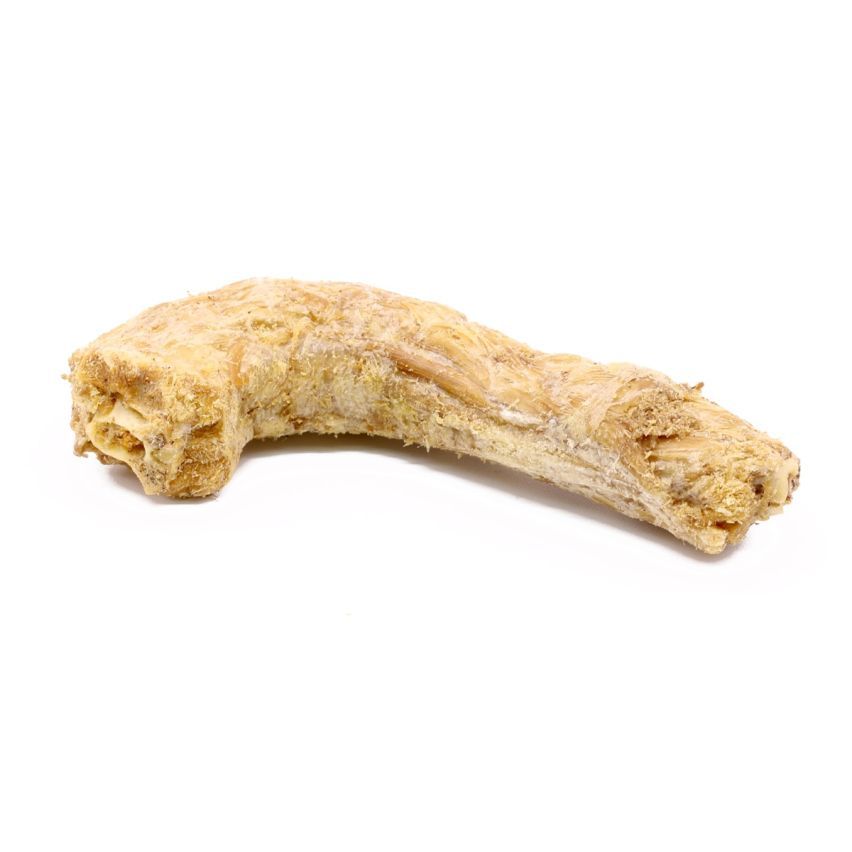
Chicken necks can be a safe and healthy treat for dogs when fed properly. However, it’s important to be aware of a few safety considerations. Firstly, always supervise your dog while they are consuming chicken necks to prevent choking or any other accidents. Secondly, make sure to feed chicken necks that are appropriate for your dog’s size. Smaller dogs may need smaller-sized necks to avoid any swallowing difficulties. Finally, always ensure that the chicken necks are sourced from a reputable supplier and properly stored to prevent any bacterial contamination. By following these precautions, chicken necks can be a safe and enjoyable treat for your furry friend.
Safety Considerations
When considering feeding chicken necks to your dog, it’s important to prioritize safety. Always supervise your dog while they are consuming chicken necks to prevent any choking hazards or accidents. Additionally, choose chicken necks that are appropriate for your dog’s size to avoid any swallowing difficulties. Ensure that the chicken necks are sourced from a reputable supplier and properly stored to prevent bacterial contamination. By following these safety precautions, you can enjoy the benefits of chicken necks as a nutritious and tasty treat for your furry friend.
How To Feed Chicken Necks Safely
When feeding chicken necks to your dog, it is essential to ensure their safety. Follow these guidelines to feed chicken necks safely:
- Supervision: Always supervise your dog while they are eating chicken necks to prevent choking hazards or accidents.
- Size Appropriate: Choose chicken necks that are appropriate for your dog’s size to avoid any swallowing difficulties.
- Reputable Supplier: Source chicken necks from a reputable supplier to ensure their quality and safety.
- Proper Storage: Store chicken necks properly to prevent bacterial contamination. Follow storage guidelines provided by the supplier.
By following these safety precautions, you can enjoy feeding your dog chicken necks as a nutritious and delicious treat.
Health Benefits Of Chicken Necks For Dogs
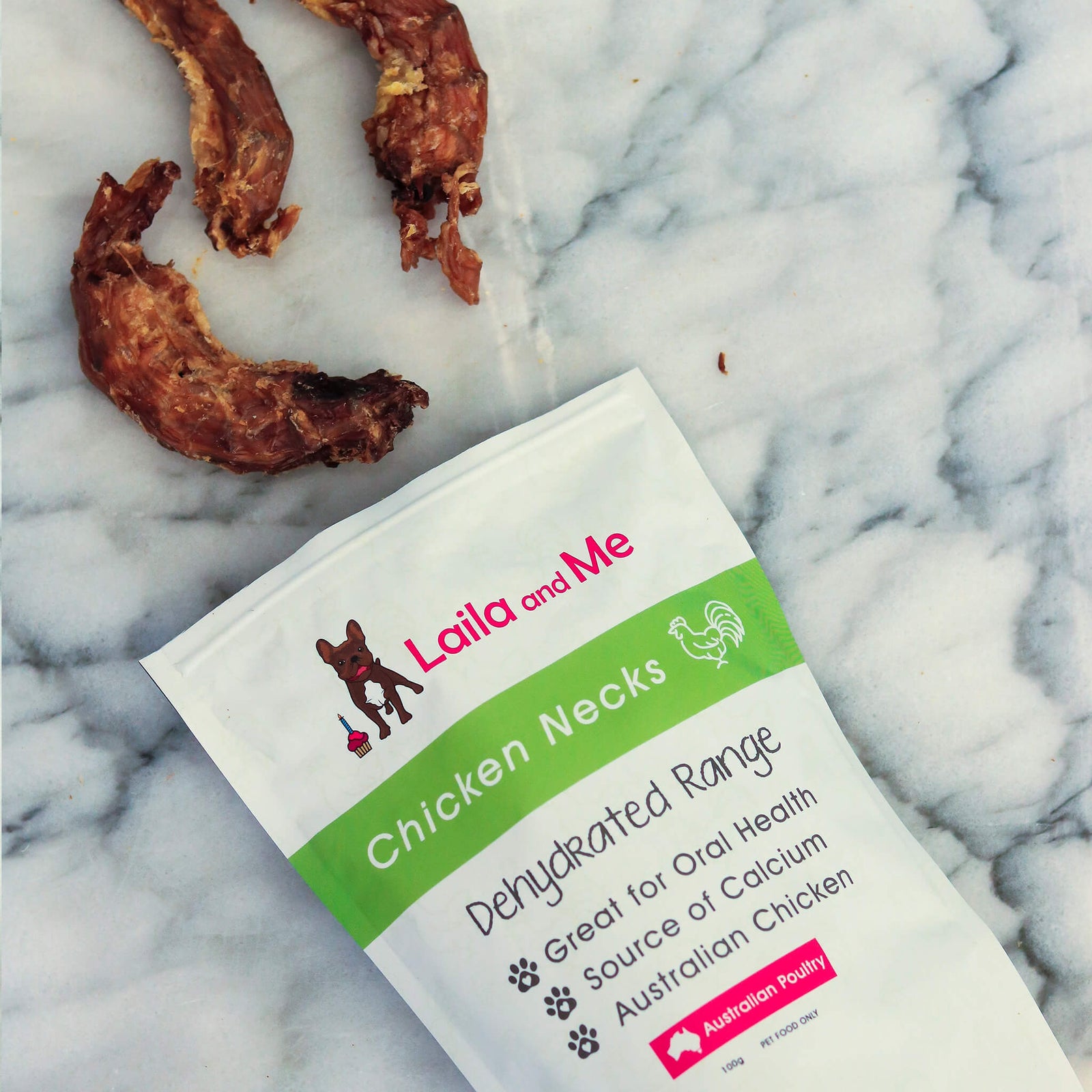
Chicken necks offer several health benefits for dogs. One major advantage is their ability to improve dental health. As dogs chew on the necks, they help to remove plaque and tartar buildup, promoting cleaner and healthier teeth. Additionally, chicken necks are a natural source of glucosamine, which supports joint health and mobility. This is especially beneficial for older dogs or those with joint issues. Furthermore, the necks contain essential nutrients like protein, vitamins, and minerals that contribute to a well-rounded and balanced diet for dogs. Incorporating chicken necks into your dog’s diet can help enhance their overall well-being.
Improving Dental Health
Chicken necks for dogs serve as an excellent treat to enhance dental health. As dogs chew on these necks, they help remove plaque and tartar buildup, promoting cleaner and healthier teeth. The chewing action improves gum health by stimulating blood flow to the gums. Additionally, the bones in chicken necks act as a natural toothbrush, gently scraping off food particles stuck between teeth. Regular consumption of chicken necks can result in fresher breath and reduced risk of periodontal disease. By incorporating chicken necks into your dog’s diet, you can ensure their dental hygiene is taken care of naturally.
Boosting Immune System
Including chicken necks in your dog’s diet can help boost their immune system. These treats are packed with essential vitamins, such as vitamin E and B12, which are known to support a healthy immune system. The natural source of protein in chicken necks also provides important nutrients like calcium and phosphorus, which contribute to maintaining strong bones and teeth. A strong immune system is crucial for your furry friend’s overall well-being and can help them fight off illnesses and infections. By incorporating chicken necks into their diet, you can give their immune system the extra support it needs.
How To Incorporate Chicken Necks Into Your Dog’s Diet
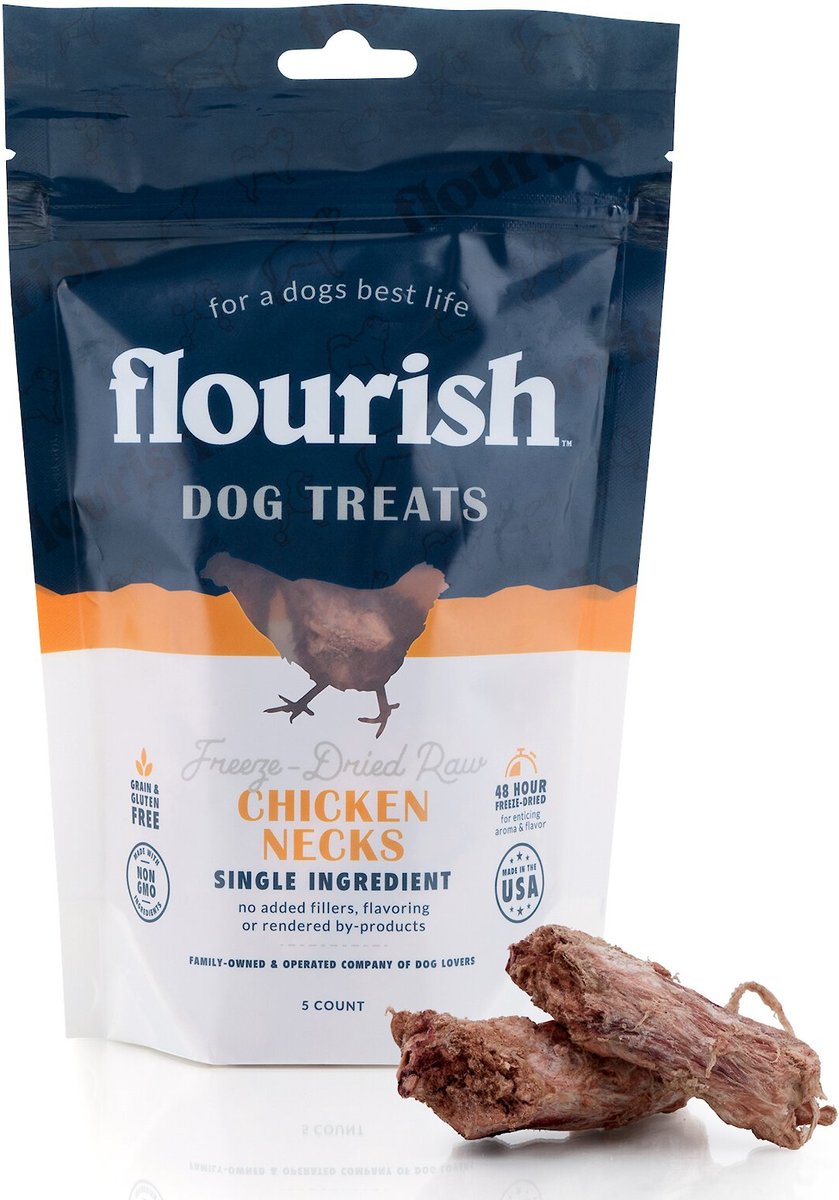
To incorporate chicken necks into your dog’s diet, start by determining the appropriate serving size based on your dog’s weight and size. As a general guideline, a small dog can have one chicken neck per day, while a larger dog may need two or more. It’s important to supervise your dog while they eat the chicken neck to ensure they chew it properly and don’t swallow it whole. You can also consider incorporating chicken necks as a meal topper or mixing them with your dog’s regular food. Remember to consult with your veterinarian before making any changes to your dog’s diet.
Feeding Guidelines
When incorporating chicken necks into your dog’s diet, it’s important to follow some feeding guidelines. The appropriate serving size of chicken necks depends on your dog’s weight and size. Generally, a small dog can have one chicken neck per day, while a larger dog may need two or more. It’s crucial to supervise your dog while they eat the chicken neck to ensure they chew it properly and don’t swallow it whole. You can also consider incorporating chicken necks as a meal topper or mixing them with your dog’s regular food. Remember to consult with your veterinarian before making any changes to your dog’s diet.
Cooking Methods For Chicken Necks
There are a few different cooking methods you can use when preparing chicken necks for your dog. One option is to boil them in water until they are fully cooked. Another option is to bake them in the oven at a low temperature until they are crispy and crunchy. If you prefer, you can also grill chicken necks on the barbecue for a smoky flavor. Regardless of which method you choose, be sure to remove any excess fat or skin before cooking. This will help make the chicken necks easier to digest for your furry friend.
Risks And Precautions When Feeding Chicken Necks
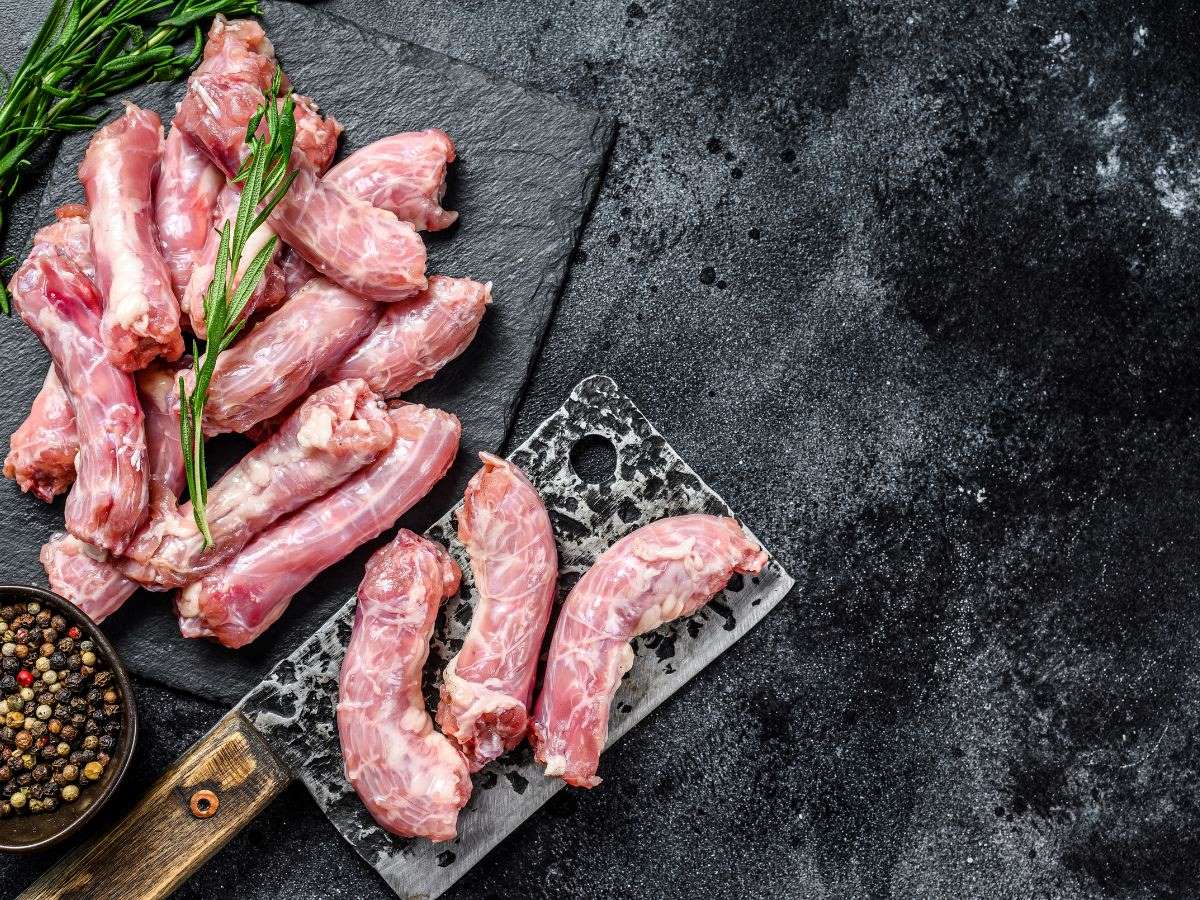
Feeding chicken necks to your dog can come with certain risks and precautions that are important to be aware of. One of the main risks is the potential for choking hazards, especially if your dog gulps down the necks without chewing them properly. To minimize this risk, it’s recommended to supervise your dog while they are eating and encourage them to chew thoroughly. Additionally, some dogs may have allergies or sensitivities to chicken, so it’s crucial to monitor for any adverse reactions such as itching, vomiting, or diarrhea. Always consult with your veterinarian before introducing any new food into your dog’s diet to ensure their safety and well-being.
Choking Hazards
When feeding chicken necks to your dog, it’s important to be aware of the potential choking hazards that they can pose. Chicken necks can be small and easily swallowed without proper chewing, increasing the risk of choking. To minimize this risk, it’s crucial to supervise your dog while they are eating and encourage them to chew thoroughly. By doing so, you can help ensure that the bones are broken down into smaller, safer pieces before being swallowed. Always prioritize your dog’s safety and take precautions to prevent choking incidents when feeding them chicken necks.
Dealing With Potential Allergies
When feeding chicken necks to your dog, it’s important to be mindful of potential allergies. Some dogs may have sensitivities or allergies to chicken or poultry products, including chicken necks. It’s crucial to monitor your dog closely after introducing chicken necks into their diet, looking for any signs of allergic reactions such as itching, hives, digestive issues, or difficulty breathing. If you suspect your dog is allergic to chicken necks, it’s best to consult with a veterinarian for guidance. They can help determine the cause of the allergy and recommend alternative protein sources or hypoallergenic diets for your furry friend’s health and well-being.
Conclusion
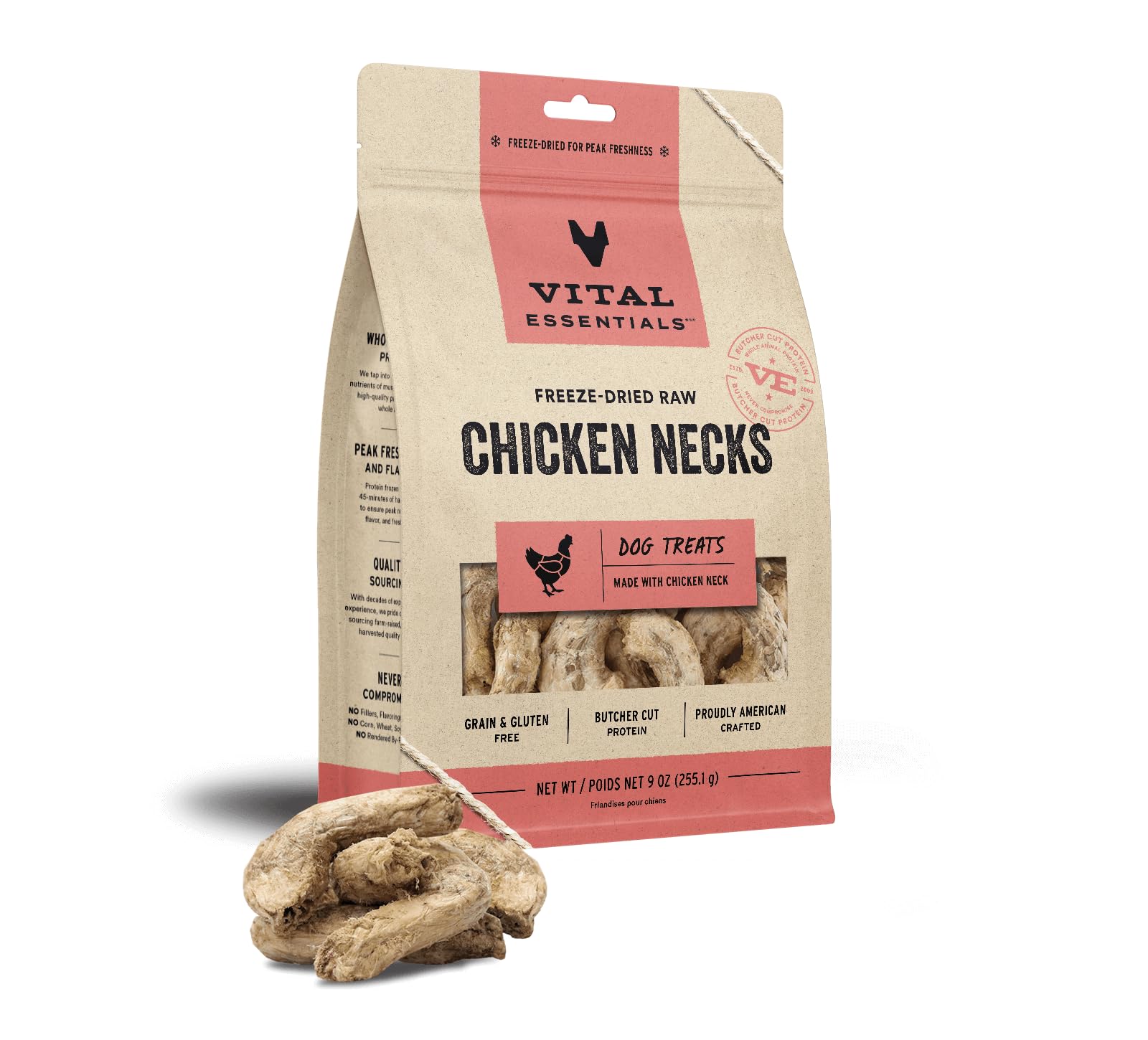
In conclusion, chicken necks can be a nutritious treat for dogs when given in the right quantity and under proper supervision. They are packed with essential nutrients that can improve dental health and boost the immune system. However, it is important to ensure the safety of your furry friend by following feeding guidelines and being cautious of potential choking hazards. Additionally, it’s crucial to be aware of any potential allergies your dog may have to chicken or poultry products. Overall, incorporating chicken necks into your dog’s diet can be a tasty and beneficial addition to their meals. Choose high-quality chicken necks from reputable sources to ensure your dog’s health and well-being.
Summary Of Benefits
Chicken necks for dogs offer a multitude of benefits for their overall health and well-being. With their high protein content and natural chondroitin and glucosamine, chicken necks support joint health and mobility. They also serve as a great dental health aid, naturally cleaning their teeth as they chew. Additionally, the nutrients found in chicken necks help boost the immune system, making them a nutritious treat for furry friends. By incorporating chicken necks into their diet in a safe and controlled manner, dog owners can provide their pets with a tasty and beneficial addition to their meals.
Tips For Choosing Quality Chicken Necks
When selecting chicken necks for your furry friend, it’s important to choose high-quality options. Here are some tips to keep in mind:
- Source: Look for chicken necks that are sourced from reputable suppliers. Ensure that the chickens used are human-grade and raised in a healthy environment.
- Freshness: Check the freshness of the chicken necks by inspecting their appearance and smell. They should have a fresh and meaty smell, with no signs of discoloration or foul odor.
- Texture: Opt for chicken necks that are firm and not overly soft or mushy. This ensures that they will provide a satisfying chewing experience for your dog.
- Size: Consider the size of the chicken necks in relation to your dog’s breed and chewing abilities. Smaller dogs may require smaller necks to prevent choking hazards.
- Packaging: Choose chicken necks that are well-packaged and have clear labeling, including information about the product’s origin, expiration date, and any additional processing or additives.
By following these tips, you can ensure that you are providing your furry friend with high-quality and nutritious chicken neck treats.
FAQ About Chicken Necks For Dogs: A Nutritious Treat For Furry Friends
Q: What makes chicken necks a good treat for dogs?
A: Chicken necks are a great source of protein, glucosamine, and chondroitin, which help support healthy joints and muscles in dogs.
Q: How should chicken necks be given to dogs?
A: Chicken necks should be fed raw and always under supervision to prevent choking hazards. They can be given whole or chopped up, depending on the size of the dog.
Q: Are there any risks associated with feeding chicken necks to dogs?
A: While chicken necks can be a nutritious treat, there is a choking risk, especially for small dogs or dogs that gulp their food. Always monitor your dog while they are eating a chicken neck.
Q: Can dogs with allergies eat chicken necks?
A: If your dog has poultry allergies, it’s best to avoid feeding them chicken necks. Always consult with a veterinarian before introducing new foods into your dog’s diet.
Q: How often can chicken necks be given to dogs?
A: Chicken necks should be given in moderation as a treat and not as a primary source of nutrition. Consult with your vet to determine the appropriate feeding frequency based on your dog’s diet and health needs.
Q: Are there any alternative treats to chicken necks for dogs?
A: Yes, there are many safe and nutritious treats available for dogs, such as beef or lamb treats, fruits and vegetables, and commercial dog treats. It’s essential to choose treats that are appropriate for your dog’s dietary requirements and preferences.

The Bird ‘n’ Bike Cafe ‘n’ Bar is a charming establishment nestled in the heart of Chiltern, Victoria, where locals and visitors alike come together to enjoy delicious food, great company, and a warm, welcoming atmosphere. With 1187 likes and 136 check-ins, it’s clear that the Bird ‘n’ Bike has captured the hearts of many. Our cafe and Bar is open from Wednesday to Sunday, inviting guests to start their day with us from 8 am to 2:30 pm. Whether you prefer to dine in and savor the cozy ambiance or grab a delicious meal, we’ve got you covered.